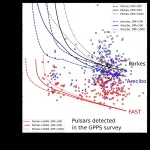(Press-News.org) A new paper in JNCI Cancer Spectrum, published by Oxford University Press, indicates that several non-genetic factors--including greater red meat intake, lower educational attainment, and heavier alcohol use--are associated with an increase in colorectal cancer in people under 50.
In the United States, incidence rates of early-onset colorectal cancer have nearly doubled between 1992 and 2013 (from 8.6 to 13.1 per 100,000), with most of this increase due to early-onset cancers of the rectum. Approximately 1 in 10 diagnoses of colorectal cancer in this country occur in people under 50.
Researchers have observed the rise particularly among people born since the 1960s in studies from the United States, Canada, Australia, and Japan. During the same period there have been major changes in diets among younger generations across the developing world. Such changes include decreases in consumption of fruits, non-potato vegetables, and calcium-rich dairy sources. This is coupled with an increase in processed foods (e.g., meats, pizza, macaroni and cheese, etc.) and soft drinks. Average nutrient intakes of fiber, folate, and calcium among the U.S. population are also lower than recommended.
The increase in early onset colorectal cancer is concerning to researchers because these cancers often have worse outcomes than those diagnosed in older people. It has led to recommendations that colorectal cancer screening begin at younger ages.
Previous research has outlined potential risk factors for early-onset colorectal cancer including greater consumption of processed meat, reduced consumption of vegetables and citrus fruit, greater body mass index, sedentary lifestyles, greater alcohol use, smoking, reduced aspirin use, and diabetes. However, researchers have yet to perform a comprehensive, large-scale evaluation that compares the magnitude of these risks with those for late-onset colorectal cancer and assesses whether the risks for early-onset colorectal cancer correlate with specific types of colorectal cancer.
Using data pooled from 13 population-based studies, researchers here studied 3,767 colorectal cancer cases and 4,049 controls in people under 50 and 23,437 colorectal cancer cases and 35,311 controls in people 50 or above years.
Early-onset colorectal cancer was associated with not regularly using aspirins, greater red meat intake, lower educational attainment, heavier alcohol use, and (interestingly enough) also alcohol abstinence. Researchers also found that lower total fiber intake was linked more strongly to rectal than colon cancer.
Several other colorectal cancer risk factors trended toward an association with early-onset colorectal cancer, including history of diabetes and lower folate, dietary fiber, and calcium intake. However, neither BMI nor smoking were risk factors in the early-onset group, in contrast to the late-onset group.
According to Richard Hayes, the senior investigator for this research: "this first large-scale study of non-genetic risk factors for early-onset colorectal cancer is providing the initial basis for targeted identification of those most at risk, which is imperative in mitigating the rising burden of this disease."
INFORMATION:
Direct correspondence to:
Richard B. Hayes
Professor of Population Health and Environmental Medicine
NYU Langone Health
180 Madison Ave, Room 415
New York, NY 10016
Richard.B.Hayes@nyulangone.org
To request a copy of the study, please contact:
Daniel Luzer
daniel.luzer@oup.com
This work was funded by the National Cancer Institute under R03-CA215775-02, awarded to Dr Richard Hayes, and through the Genetics and Epidemiology of Colorectal Cancer Consortium (GECCO) funded by the National Cancer Institute, National Institutes of Health, US Department of Health and Human Services (U01 CA164930, R01 CA201407), awarded to Dr Ulrike Peters. This research was funded in part through the NIH/NCI Cancer Center Support Grant P30 CA015704 and training grant T32HS026120, from the Agency for Healthcare Research and Quality. The Colon Cancer Family Registry (CCFR, www.coloncfr.org) is supported in part by funding from the National Cancer Institute (NCI), National Institutes of Health (NIH) (award U01 CA167551). The CCFR Set-1 (Illumina 1M/1M-Duo) and Set-2 (Illumina Omni1-Quad) scans were supported by NIH awards U01 CA122839 and R01 CA143247 (to GC). The CCFR Set-3 (Affymetrix Axiom CORECT Set array) was supported by NIH award U19 CA148107 and R01 CA81488 (to SBG). The CCFR Set-4 (Illumina OncoArray 600K SNP array) was supported by NIH award U19 CA148107 (to SBG) and by the Center for Table 3. Association between anthropometric, dietary, lifestyle, and pharmacological risk factors and early-onset colorectal cancer risk, strati?ed by anatomic subsite
Lifestyle and environmental risk factora
Colon cancerb Rectal cancerb
Colon vs rectumc OR (95% CI) P OR (95% CI) PP
Anthropometric BMI, per 5kg/m2 1.05 (0.99 to 1.10) .09 0.99 (0.93 to 1.06) .84 .11 Height, per 10cm 1.03 (0.94 to 1.12) .55 1.03 (0.93 to 1.13) .57 .96 Lifestyle Pack-years of smoking 0.99 (0.94 to 1.04) .69 0.99 (0.94 to 1.05) .73 .99 Sedentary lifestyle 1.15 (0.88 to 1.51) .30 1.09 (0.78 to 1.53) .63 .77 Alcohol use, 0g/d 1.28 (1.12 to 1.47) 28g/d 1.29 (1.06 to 1.57) .01 1.34 (1.08 to 1.67) .009 .75 Lower educational attainment, highest level completed 1.12 (1.05 to 1.18) END
Philadelphia, May 20, 2021 - Research has shown empathy gives healthcare workers the ability to provide appropriate supports and make fewer mistakes. This helps increase patient satisfaction and enhance patient outcomes, resulting in better overall care. In an upcoming issue of the END ...
A newly developed tool will allow scientists to better gauge how centuries of fossil fuel emissions could be skewing the data they collect from marine environments.
Researchers at the University of Alaska Fairbanks led the effort, which created a way for marine scientists to factor into their results the vast amounts of anthropogenic carbon dioxide that are being absorbed by oceans. Those human-caused carbon sources can muddy research results -- a problem known as the Suess effect -- leading to flawed conclusions about the health and productivity of marine ecosystems.
"The ...
Oncotarget published "Analytic validation and clinical utilization of the comprehensive genomic profiling test, GEM ExTra®" which reported that the authors developed and analytically validated a comprehensive genomic profiling assay, GEM ExTra, for patients with advanced solid tumors that uses Next Generation Sequencing to characterize whole exomes employing a paired tumor-normal subtraction methodology.
The assay detects single nucleotide variants, indels, focal copy number alterations, TERT promoter region, as well as tumor mutation burden and microsatellite instability status.
Additionally, the assay incorporates ...
Scientists have made a major breakthrough in the study of embryonic development and how it can be impacted by external factors such as climate change.
Researchers at the University of Plymouth have developed a cutting edge technique which enables them to instantly examine the biological traits and behaviours of developing embryos as an energy signature, rather than focusing on individual characteristics.
The method, outlined in a study published in BMC Bioinformatics, is built around timelapse video captured by the researchers of aquatic animals - specifically, the embryos of a freshwater pond snail Radix ...
Using the Five-hundred-meter Aperture Spherical radio Telescope (FAST), a research team led by Prof. HAN Jinlin from National Astronomical Observatories of Chinese Academy of Sciences (NAOC) has discovered 201 pulsars, including many very faint pulsars, 40 millisecond pulsars (MSPs), and 16 pulsars in binaries.
These discoveries were published in Research in Astronomy and Astrophysics.
Pulsars are compact remnants of the death of bright, massive stars. They have the strongest magnetic field, highest density and fastest rotation of any celestial body in the Universe, and show significant ...
Nearly two thirds (61%) expressed concern about their worsening mood in Lockdown and associated restrictions1.
34% said they felt more anxious and 28% felt more depressed during Lockdown and associated restrictions1.
Coffee helped lift nearly half (44%) of adult's negative moods in Lockdown and associated restrictions1.
A new pan-European survey funded by the Institute for Scientific Information on Coffee exploring the impact of COVID-19 Lockdowns and associated restrictions (in those countries where there has been no Lockdown), has found that nearly two thirds of adults (61%) expressed concern about their worsening mood; two times higher than those concerned about physical inactivity (24%)1.
Understanding the effects of COVID-19 restrictions ...
Scientists from Hokkaido University have shown that an antigen-based test for quantifying SARS-CoV-2 in saliva samples is simple, rapid, and more conducive for mass-screening.
More than a year into the COVID-19 pandemic, the RT-PCR test remains the gold standard for detection of the SARS-CoV-2 virus. This method requires trained personnel at every step, from collection of nasopharyngeal swab (NPS) samples to interpretation of the results; in addition, the entire process ranges from 24-48 hours on average. As the virus can be transmitted by an infected person before symptoms ...
Fixed-dose combination of nivolumab and relatlimab holds the cancer in check significantly longer than nivolumab alone
This is the first regimen to demonstrate a statistical benefit over anti-PD-1 monotherapy in metastatic melanoma
BOSTON - A combination of two drugs that target different proteins on immune system T cells kept advanced melanoma in check significantly longer than one of the drugs alone in a phase 3 clinical trial involving 714 patients. Dana-Farber Cancer Institute investigators co-led the study. Findings will be presented at the American Society of Clinical Oncology (ASCO) Annual Meeting, being held ...
HOUSTON -- The glutaminase (GLS1) inhibitor IACS-6274, discovered and developed by The University of Texas MD Anderson Cancer Center's Therapeutics Discovery division, appears to be well-tolerated with successful target inhibition and early signs of anti-tumor activity in a biomarker-driven Phase I trial. Interim results of the study will be presented at the 2021 American Society for Clinical Oncology (ASCO) Annual Meeting on June 4.
On the trial, 17 of 20 evaluable patients achieved a best response of stable disease, with a disease control rate of 60% at 12 weeks. Six patients with biomarker-defined advanced cancers ...
URBANA, Ill. - Women's ability to work as entrepreneurs can help alleviate poverty and malnutrition in developing countries. As local governments and development organizations aim to encourage business opportunities, it's important to identify projects suited for women's lives in rural households.
The soy kit, which includes common household items such as a pot, spoon, thermometer, and cheese cloth, enables entrepreneurs to create value-added products from soy in small-scale household settings. The kit has potential to improve the economic conditions of Malawi women in a sustainable way, a University of Illinois study concludes.
"The larger issue is about adding value to agricultural products in the developing world as a means ...




